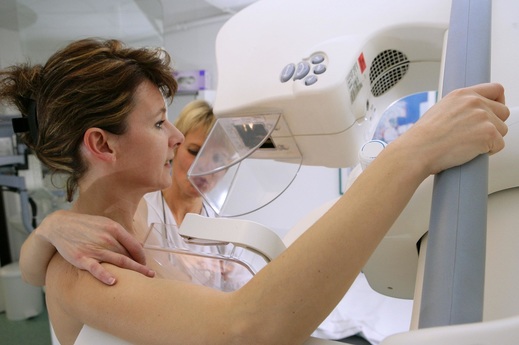
As most readers know, mammography remains at the forefront of screening for early breast cancer, but not without controversy. As a result of in-depth meta-analyses assessing the number of lives saved per number of women screened, as well as the psychological trauma associated with biopsy following a possible "finding" (often a false-positive), the United States Preventive Services Task Force (USPSTF), along with its Canadian counterpart, has backed away from recommending yearly screening mammograms except in women considered at higher than average risk for developing breast cancer. But did you know that some suspect breast cancers on a mammogram may disappear with further followup? Read about the findings of a Norwegian study in this re-posted CTV.ca/health blog I wrote in 2008.
Why some early breast cancers may spontaneously disappear
November 30, 2008 13:33 by Dr. Lorne Brandes
“I know I need to be screened, but every time I go for that test, I dread what my mammogram might show,” a patient recently confided to me.
She’s not alone. In the back of everyone’s minds is the thought that bad news could be forthcoming. Yet the assurance that, if diagnosed early, most breast cancers can be cured keeps women going back for the ordeal every year or two. After all, they (and we) are told that the more often breast cancer is caught and treated while the lump is too small to feel, the less likely the disease will become invasive, spread and, eventually, kill.
Now, the conventional wisdom of this notion has been shaken to some degree by a large new mammography study just published in the Archives of Internal Medicine. Norwegian doctors compared breast cancer incidence over a six-year period among 120,000 women between the ages of 50 and 64 who had three screening mammograms (one every two years) and 110,000 similarly aged women who had only a single mammogram at the end of the six-year period.
The doctors assumed that, regardless of when they were detected, the number of breast cancer tumours ultimately would be the same in each group, but the results came as a surprise. While, as expected, the cumulative number of breast cancers detected over six years in the screened group (1,909 cases per 100,000 population) was higher than in the control group (1,564 cases per 100,000 population), what was not expected was that, as compared to the screened group, the control group had 22 per cent fewer cancers detected on the single mammogram carried out at the end of the sixth year.
This outcome could not be explained by any obvious differences between the two groups. Therefore, the study’s authors raised the provocative possibility that “the natural course for some screen (mammogram)–detected breast cancers may be to spontaneously regress,” adding, for emphasis, “although many clinicians may be skeptical of the idea, the excess incidence (of cancer diagnoses) associated with repeat mammography demands that spontaneous regression be considered carefully.”
If this hypothesis is correct (and I, for one, believe it may be), what is the mechanism whereby up to one-in-five early breast cancers picked up on mammograms might shrink away without the need for treatment?
A major clue may be the age (50-64 years) of the population studied. What natural event occurs in most women between the ages of 50 and 55?
It’s the menopause, of course. Given that approximately two out of three breast cancer tumours are estrogen-driven, the sudden drop-off in ovarian estrogen at menopause may starve those estrogen-requiring cancers of the very hormone that drives their growth and development. As a result, they may either disappear over time or, in some cases, shrink and lie dormant without further growth.
There are other strong precedents in support of the “hormone hypothesis for spontaneous regression”: removing the ovaries, a common procedure for many decades in the treatment of metastatic breast cancer, often led to a dramatic, if temporary, shrinkage of large tumours. We can accomplish the same result today with specific drugs, called aromatase inhibitors, which block fat cells from producing estrogen.
Moreover, with the widespread discontinuance of hormone replacement therapy (HRT) for menopausal symptoms, the incidence of breast cancer world-wide has fallen rather dramatically over a very short period of time, consistent with a potent biological effect of hormone withdrawal to inhibit the development of breast cancer.
In an editorial accompanying the Norwegian study, cancer experts Drs. Robert M. Kaplan and Franz Porzsolt write: “If the spontaneous remission hypothesis is credible, it should cause a major reevaluation in the approach to breast cancer research and treatment. Certainly it is worthy of further evaluation.” I agree.
 RSS Feed
RSS Feed
